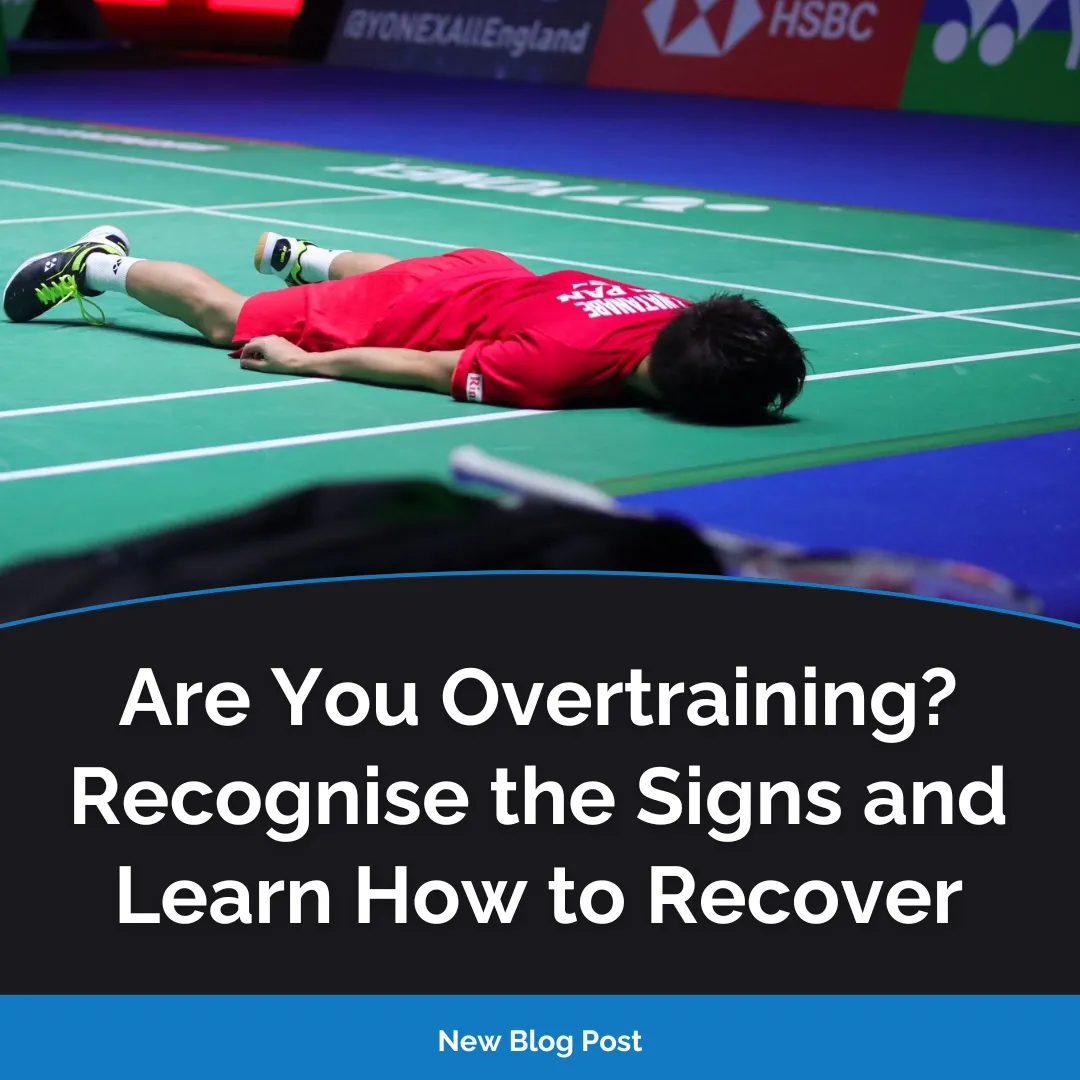
Are You Overtraining? Recognise the Signs and Learn How to Recover
Are You Overtraining? Recognise the Signs and Learn How to Recover
Overtraining is a common issue among athletes, especially those who are dedicated and driven to push their limits. Recognising the signs and symptoms of overtraining is crucial to prevent long-term damage and ensure consistent performance improvement. Let’s dive into how you can recognise overtraining and incorporate appropriate rest strategies.
1. Persistent Fatigue
Feeling constantly tired, even after a good night’s sleep? Persistent fatigue is a major indicator of overtraining. This fatigue can manifest as a lack of motivation to hit your training sessions. If you’re dragging through workouts and daily activities, it’s time to scale back.
Tip: Incorporate more rest days into your routine and ensure you’re getting quality sleep every night. Try taking a full day off from physical activity and focus on relaxation techniques such as deep breathing or light stretching.
2. Decreased Performance
Are you noticing a drop in your performance levels despite rigorous training? This can be frustrating, but it’s a classic sign of overtraining. Missing shots you could easily hit, lacking power in your smashes, or poor judgment of shots are all red flags. When you don’t give your body adequate time to recover, it can’t rebuild stronger, leading to decreased performance.
Tip: Focus on quality over quantity in your training sessions. Sometimes less is more. Pay attention to your performance metrics and consider reducing the intensity or duration of your workouts temporarily.
3. Increased Injuries
Frequent injuries and constant muscle soreness are clear signals of overtraining. For example, I’ve had many knee injuries, and my knee always swells up if I train too much. I’ve also seen plenty of players rolling their ankles when playing under fatigue. When your body doesn’t have enough time to repair itself between sessions, it becomes more susceptible to injuries.
Tip: Listen to your body and don’t ignore the aches and pains. Integrate recovery techniques such as stretching, foam rolling, and massage into your routine. Prioritise exercises that promote joint health and stability.
4. Mood Changes
Overtraining doesn’t just affect your body; it impacts your mind too. Feeling irritable, down, or unmotivated? These mood changes can be a sign that you’re overtraining. If you’re experiencing mood swings or a lack of motivation, it’s likely due to the strain of overtraining.
Tip: Monitor your mood and mental health just as closely as your physical performance. Engage in activities that promote mental well-being, such as meditation, socialising with friends, or pursuing a hobby.
5. Sleep Problems
Struggling to fall asleep or waking up frequently during the night? Overtraining can disrupt your sleep patterns, making it harder for your body to get the rest it needs. Poor sleep can further exacerbate fatigue and negatively impact your recovery.
Tip: Establish a regular sleep schedule and create a relaxing bedtime routine to improve sleep quality. Avoid caffeine and electronic screens before bedtime, and create a sleep-friendly environment with minimal light and noise.
Tips for Recovery and Prevention
Recognising the signs of overtraining is the first step. Here are some practical tips to help you recover and prevent overtraining:
1. Prioritise Rest Days: Ensure you have at least one or two rest days in your weekly training schedule. Rest days are essential for muscle repair and recovery.
2. Active Recovery: Engage in low-intensity activities like walking, swimming, or yoga on rest days. Active recovery can promote blood flow and help reduce muscle stiffness.
3. Sleep Hygiene: Focus on getting quality sleep. Aim for 7-9 hours per night and create a sleep-friendly environment by minimising noise, reducing light exposure, and maintaining a cool room temperature.
4. Nutrition and Hydration: Proper nutrition and hydration are crucial for recovery. Ensure you’re consuming high-quality carbohydrates such as rice, potatoes, and fruit. Stay hydrated by drinking water, and consider electrolyte-rich drinks if you’re training intensely.
5. Listen to Your Body: Pay attention to how your body feels. If you’re experiencing persistent symptoms of overtraining, it might be necessary to take a longer break or consult a healthcare professional for personalised advice. Examples of listening to your body include taking an unplanned rest day if you feel unusually tired or stopping a workout early if you experience pain beyond normal muscle soreness.
Conclusion
Overtraining can hinder your progress and lead to long-term health issues if not addressed promptly. By recognising the signs and incorporating proper rest strategies, you can maintain a healthy balance between training and recovery, ensuring sustained performance improvement and overall well-being.
If you’re ready to optimise your training and recovery, book a free consultation with me to discuss a personalised strength and conditioning plan tailored to your needs.
Stay healthy and train smart!
Interested in a specialised badminton training program? Check out my comprehensive program designed to maximise your performance on the court.
Check Out My Strength Program For Badminton Players
You can also watch a video version of this blog post

